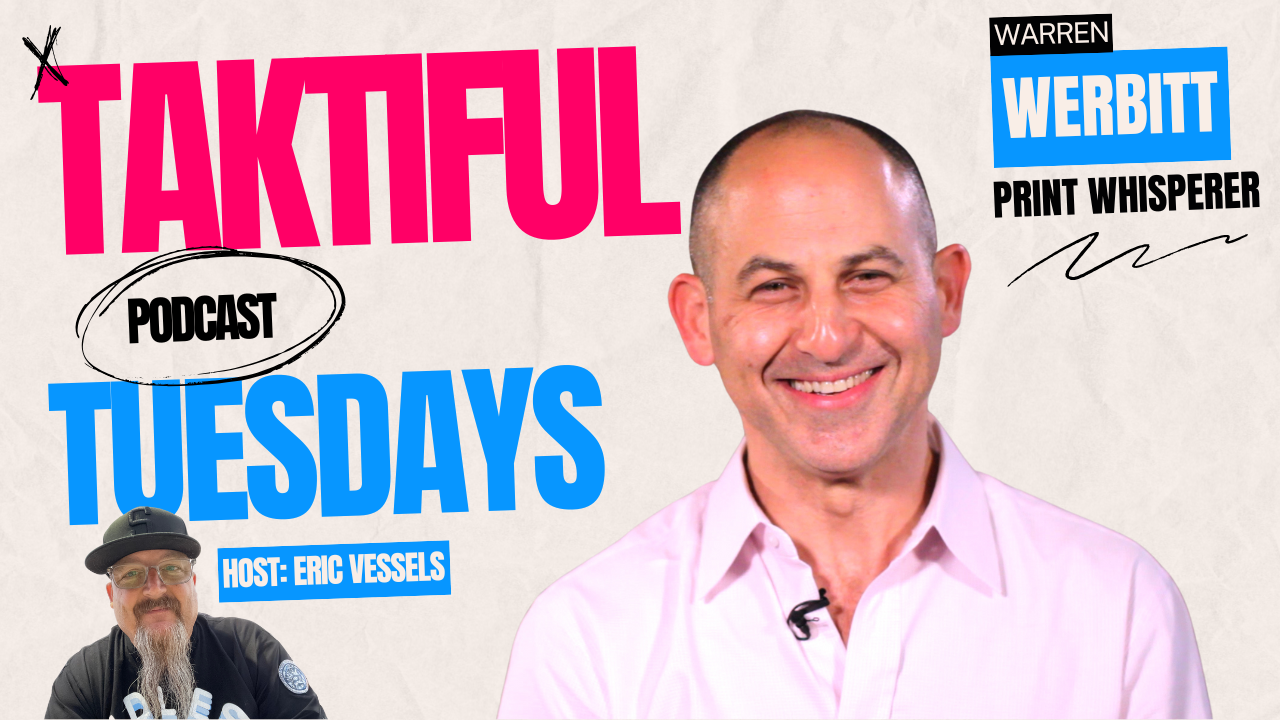As I write this, I have my laptop on my lap and I am listening to the TV and writing this story. Next to me Sherri is harvesting her crops in FarmVille. We jokingly debate whose habit is more of a waste of time. She says that watching TV is a waste of time and I jokingly ask her what she can do with all the money she has earned on FarmVille. As you can imagine, there are no real winners to this debate.
A new study from Nielsen shows what we are – and aren't – doing with our time. It shows that many people are tinkering or dabbling in social media. Tinkering or dabbling, meaning that folks get stuck in a “time suck,” which is now taking up more time than email and online gaming. ”Time suck" is a new phrase often used to describe online social networks like Facebook and online games like FarmVille. The latest Nielsen research quantifies the phenomenon, showing that nearly one-third of the time Americans spend online is devoted to such activities.
The report finds that American consumers spent 43% more time (June 2009 vs. June 2010) on social networks such as Facebook, Twitter and LinkedIn. Just how much time is spent in the social realm? More than one-third was spent communicating via social networking, IM, email, blogs or message boards.
"Despite the almost unlimited nature of what you can do on the web, 40% of US online time is spent on just three activities – social networking, playing games and emailing leaving a whole lot of other sectors fighting for a declining share of the online pie," said Dave Martin, Nielsen analyst.
The increase in time spent 'socializing' online took time away from past time sucks such as email (28% decline in time spent) and instant messaging (15% decline). At the same time, the amount of time spent with social gaming has also seen a sharp increase; Farmville, for example, takes up about one-tenth of all US online time.
Social media, which consumers are now using not just to communicate but to read the latest news and information, is also taking time away from big hubs such as Yahoo and AOL. In 2009, about 5% of America's online time was spent in portals but in 2010 that percentage dropped to 4%.
Studies like this one say that we are spending less time on email and more time on social media. Are you seeing any changes in what occupies your time?
Howard Fenton is a Senior Consultant at NAPL. Howie advises commercial printers, in-plants, and manufacturers on workflow management, operations, digital services, and customer research.














Discussion
By Paul Edwards on Aug 11, 2010
Howie,
I found your blog during a "time suck" on Twitter.
BTW, I was dual tasking; Twitter and NCIS reruns.
By Chuck on Aug 12, 2010
Studies have shown that reading blogs is a "time suck", too. Just apparently not as addictive.
By Tracey on Aug 12, 2010
I'd be interested in the study that tells how much of this "time suck" is done while people are on the clock at their jobs.I am sure it is a bigger percentage than any manager would like to know.
By David on Aug 12, 2010
Twitter, FaceBook and other forms of "social" media are certainly taking up more of my time. This includes both time on the clock at Markzware and in my spare or personal time.
Social media is both educational and useful. It is like being at a trade-show, 24-7; without the sore feet. (although also without the personal interaction, so that is a negative and reason why it will not fully replace shows.)
Here was a recent blog post we did, highlighting what some printers are doing to capture this social media market:
http://markzware.com/blogs/flightcheck-articles/digital-printing-print-content-with-desktop-publishing-software/2010/07/01/
It is interesting to see what Personera and others are doing and offering. For instance printing content from your Facebook Wall. There are likely many other niches printing companies could latch onto within this social media, if not of course the larger Internet itself.
Here is maybe a fitting ending and a very personal note. I dreamed I was a tweet once. Yes, I know, need more time out on the hiking trails!
David
Markzware
@Markzware on Twitter
By Howie Fenton on Aug 12, 2010
@Tracey Great point, I will see what I can find out about wasting time while at work
@Paul ... that's my favorite time suck too ... watching TV while surfing. I have already watched all the old reruns of NCIS, CSI (Las Vegas) and now I am onto The Closer.
@Chuck ... interesting point about reading blogs being "time sucks". Question if something like a blog helps your business ... is it still sucking time?
By Roland Cailles on Aug 12, 2010
Howie, I disagree with framing social media as a "time suck." I could easily refer to it as "online socializing" and suddenly the word takes a positive meeting.
We're social creatures and technology has allowed us to engage in this critical human activity right from our desktops and computers, in a faster and more efficient manner in an info-overloaded world.
Further, considering Nielsen makes its money from ratings systems based on traditional mediums, and social media is seem in some circles as a competitor to those mediums, one can understand a possible bias that may exist on the part of Nielsen.
Disclaimer: I work as a social media specialist, so let's be clear about my bias. :)
By Noel Ward on Aug 12, 2010
I have the luxury (??) of being self-employed and working at home. This means I can cruise various social media, along with news, information and hobby sites without anyone looking over my shoulder. I get the work done and everyone is happy. But the social networking definitely does take time out of the day. Sometimes it's worthwhile, other times not so.
For instance, LinkedIn dialogues and convos are often useful. Other places I go are not. And Twitter is mostly noise. The links many people post are interesting and often relevant, but I find the time following a dozen or so in any given day eats up too much time. So I have been avoiding Twitter.
Bigger picture, I'm betting that employers are going to clamp down on access to social media sites from the office, and possibly even on company laptops. I know that some clients --software and equipment vendors-- already limit where employees can "go" when at work, and it's not hard to put firmer limits on what is done on a company laptop, for example.
By Sujay on Aug 12, 2010
Very interesting report! But I wouldn't agree that social media as a whole is a 'time suck'. Social media is now a huge and powerful tool for increasing customer connects and maintaining relationship. Sites like Facebook, Twitter, Myspace are all adopted equally - be it large enterprises, small and medium enterprises or startups.
However, there are certain gaming avenues
like Farmville, Mafia Wars etc which fall under 'time suck' category. But what if you can reach out to your customers through those avenues as well? Just look at what Second Life has achieved.
By Eric on Aug 12, 2010
I think there should also be a study of how much of our personal time is spent working. That one could be interesting as well. ;-)
By Kris Sergentakis on Aug 13, 2010
People need to get up and take a walk everyday. No wonder America is obese.
Get off your behind forget about TV and your computer. Go for a walk. People have forgotten how to communicate in person.
By Chuck on Aug 13, 2010
I was being flippant when I said reading blogs is a "time suck-- I am totally addicted to blogs far more than I actually am to social media and to your point Howie, they are incredibly valuable for work.
So, frankly, can be social media, if employed correctly. But Tracey certainly has a point, there is clearly a lot of time being wasted while at work on those ridiculous Facebook games that Sujay mentions, just as one example.
Eric makes a powerful point, though, in about how much of our personal time is spent working these days. Unless you are an hourly employee, I sincerely doubt you are working a simple 40 hour week. I was conducting business on behalf of my company from my home computer until about midnight last night myself.
By Howie Fenton on Aug 13, 2010
Chuck, I think that blogs can be more valuable then social media (although on some sites like LinkedIn they are together). And they can reinforce a sense of community and help us to better understand and address the issues in our industry.
And I agree with Kris too. I think its getting increasing too easy to become stuck behind our computers during the day and and TV's at night. So I try to get either a walk or bike ride in everyday. Of course my 19 year old son thinks I am crazy, but that's because he still has a 19 year old metabolism.
By John on Aug 13, 2010
Perhaps a more descriptive headline would be Social Media Sites have a questionable or low ROI. I'm sure for some Social Media has a high ROI but are those examples the rule or the exception?
Assuming you could actually quantify the ROI, another interesting study would be to look at Social Media ROI for different industries. Say for example: industrial technology manufacturing vs retail or education. My hunch is it really depends on where your target customers spend their time - or is it just mandatory to be on Social Media to prove your companies relevance in modern society?
By Peter Muir on Aug 14, 2010
To some social media is a noun. As a noun it's a channel (or series of channels depending on how many social media technologies one chooses to lump under the definition). People can choose to tune into the channel and watch, listen...and even participate or not. I think of all the debate over all the years about Howard Stern. Although I didn't listen to his show, I thought he was funny. As for those who thought he was vulgar...stop tuning into that channel.
To others social media is a verb. As a verb "doing social media" takes time. Some like to do social media and some don't. I admit time can fly when you are doing social media (blogs, twitter, facebook, linkedin, youtube and more). If you don't want to do social media, you don't have to.
“Social Media is about enabling conversation”, said Lon Safko and and David Brake in “The Social Media Bible.” They went on to say, “social media refers to the activities, practices and behaviors among communities of people who gather online to share information, knowledge and opinions using conversational media.
Imagine the debates when the telegraph, radio, television and the internet came along. People using the existing technology saying the “new” way is taking away from what we’re doing today. They're no different than the debates the printing industry had over flatbed scanning, desktop publishing, CTP and digital print.
There’s always another ways to get something done, you interested in trying it? It could be one hell of a ride. Or perhaps it could be a 54 hour bus ride from hell going to see a relative you don’t even like. That’s time you’ll never get back.
It takes time to debate whether it's a time suck or not. Nothing wrong with good debate, people can learn from it, just make sure you're doing something else besides debating or else the world will move on without you.
People have choices. We've always had them. People are choosing to use social media as a way they want to communicate. I can't tell them to use it or not use it...it's their choice. (Businesses can mandate whether an employee can or not). How much time they spend on it and what they do on it is up to them.
If you take away the opinion (analysis) from the report it says there are more people choosing to be online using social media tools doing social media activities. That's less people watching tv, listening to the radio, reading the paper, reading a magazine etc.
The print industry is funded by people's needs (consumer and corporate) to communicate via print. There’s an opportunity here to raise our awareness of new ways to communicate. It costs less than a TV or radio studio but it does take time.
What about using social media for your business? Use it to participate in conversations with your customers or provide them support the moment they need it. Use it to get found on searches or share information like WTT does. Use it gain knowledge and grow skills and experiences. If you try it and you’re frustrated that "it doesn't work" or “takes too much of your time” it may not be a channel for you.
But that frustration some people feel is EXACTLY what many customers of the print industry are feeling these days. B2B, B2C, association and non-profit markets are acknowledging that people want to communicate in different ways. They're splitting what's left of their smaller marketing/communications budgets into smaller portions so they can free up funding to try web site development, e-mail and social media themselves. These choices can take away from the profitability of the print industry.
Helping our customers use a mix of channels that can be used to connect with existing and new customers could be a great way to spend our time. We can even use our experiences of trying it ourselves at home and at work as part of our pitch.
There will always be more channels. And not all are effective as others. But if people are given a choice to communicate the way they want to and they go there to do it; I know I want to learn more about it and will invest some of my time to see what it’s all about.
What amazes me is that there are some people out there that actually click on the link in the e-mail from the President of a foreign land who needs my help. Someone is choosing to watch reality tv and tend a crop in Farmville—not my thing. It's all about choice.
What will you do with yours?
I gotta get out for a run. All this social media is making my butt sore.
Thanks Howie for starting this up. And thanks to everyone else who's participating. That's what living socially is all about.
By Howie Fenton on Aug 25, 2010
Great feedback.
I laughed when Noel wrote that “I have the luxury (??) of being self-employed and working at home.” I am in the same boat.. or office … or house .. or something. When I am not on site on a consulting assignment I am working out of a home office and find myself checking social media sites more then I might if I was in an office.
Peters comments were very insightful. The whole idea that some people use social media as a noun (People can choose to tune in ) or a verb (“doing social media”), made me sit down and think.
But perhaps the most important comment may have been Johns comment that “Social Media Sites have a questionable or low ROI”. That is an ongoing controversy and tough debate within our industry because it impacts our products and services we make.
Lets face it a great deal of print production is created to help companies sell stuff. And now those who make decisions about advertising and media have more channels to choose from. As a result advertising, print and media buyers are wondering if they should move money from the mass media channel such as TV, radio and newspapers to more targeted channels like static direct mail or VDP.
Of course we want them to say yes because we have some skin in the game. Those graphic arts companies who choose to offer more marketing services typically focuses on database or targeted type applications such as variable data printing, email marketing and Purls. But these are not as “hot” as the social media sights that are getting peoples eyeballs as a result of their “time sucking” attraction.
So here is the question. Do you think that advertisers are migrating: from mass media to the social media, from database applications to the social media, neither, both or just all over the place?
By Lindsay on Sep 09, 2010
Howie—
To answer your last question about whether advertisers are migrating from mass media and database applications to social media; I feel as though most companies are using an integrated approach. They aren’t choosing one or the other, but multi-touch.
There are a lot of success stories around personalized direct mail, and I think if companies only advertised/marketed within the social media world, they’d miss a large piece of their audience… not everyone is engaged in social media.
We wrote a blog post on our Xerox Digital Printing Hot Spot Blog about a http://digitalprinting.blogs.xerox.com/?p=1075" rel="nofollow">direct mail campaign we did that integrated social media, and the results were interesting. The direct mail piece drove most of the traffic to our landing page at the beginning, and we could see traffic coming from social media sites for months afterwards. From how this campaign went, we’ve continued to integrate our communication vehicles… not just choose one or the other.